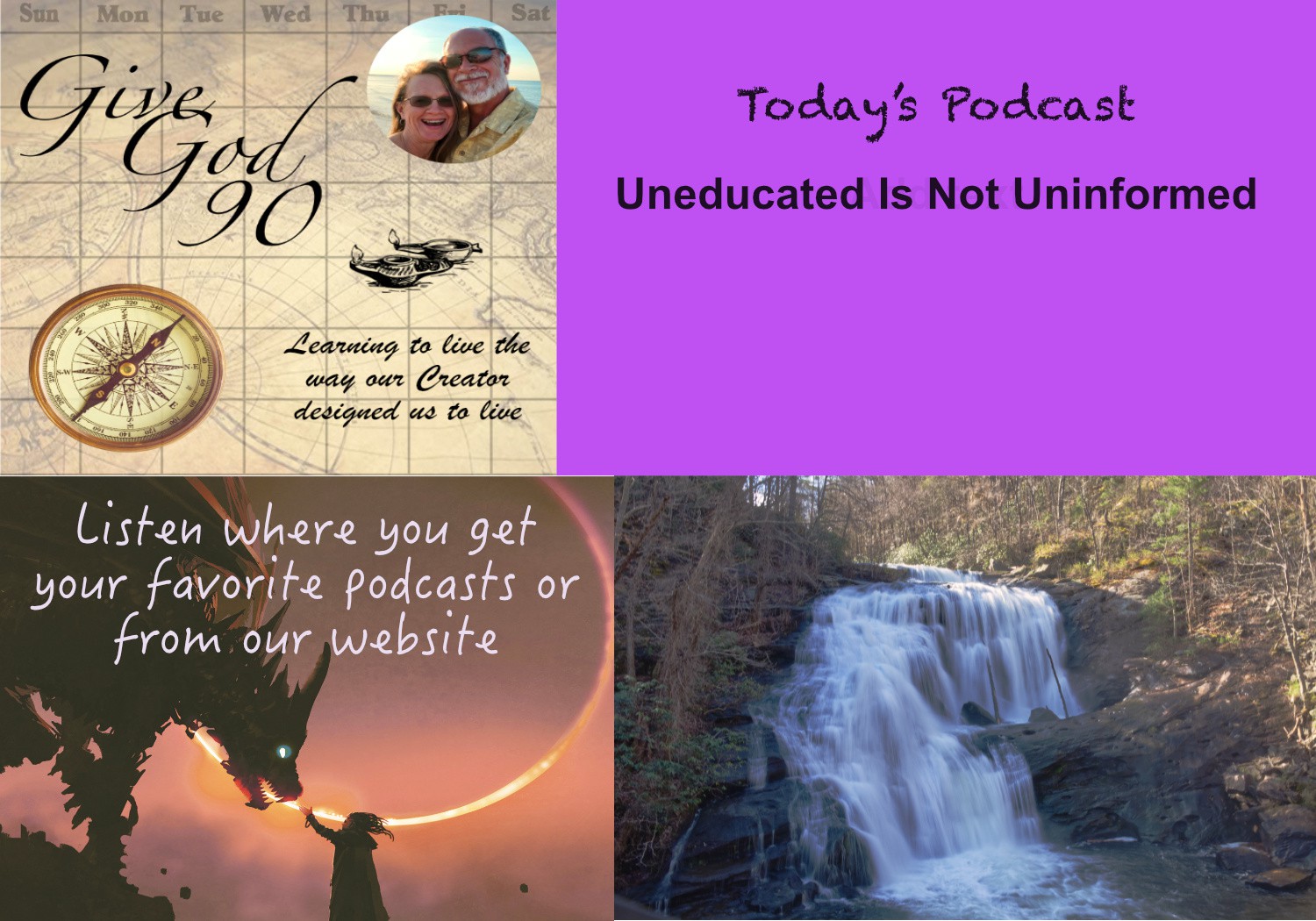Watch
Events
Articles
Market
More
New Episode, Uneducated Is Not Uninformed . Listen where you get your favorite podcasts, use the player on our homepage or here https://www.spreaker.com/show/....give-god-90-episode- With a free account you can join the chat or leave a message, please consider liking and sharing these podcasts.




Thought for Today: Friday March 21
We all have met people in our lives, at work, at home or even here on social media that seems to enjoy correcting others and telling them what is wrong with them. Sometimes it is done with an arrogant attitude – the kind that says: “I am better than you, I know things better than you and I know what is wrong with you.” Sometimes it is even done with false humility like – “I humbly hope I can help you become a better person” If you are like most of us however, you probably do not care much for people like this, and many times you don’t even listen to their advice. Therefore, instead of criticism, the goal should be to encourage and uplift. Instead of impressing others with ourselves, we want them to be impressed with our Moshiach.



We've added lyrics to our new song on TTN Music. Enjoy!
https://music.ttn.place/track/B8UTCcTddSLfbYh



Hello brothers and sisters. Here is our bulletin for the coming Sabbath celebration on 3/22/2025: https://firstfruits.cc/blog/20....25/03/20/sabbath-bul Please read the bulletin so that you know what is going on in our community.



Since passover season is near, people are talking about the pyramids I suppose. I posted up what I think the pyramids are about over on my blog: https://jbschirtzinger.beitesh....elpublications.org/2
What do you think?


